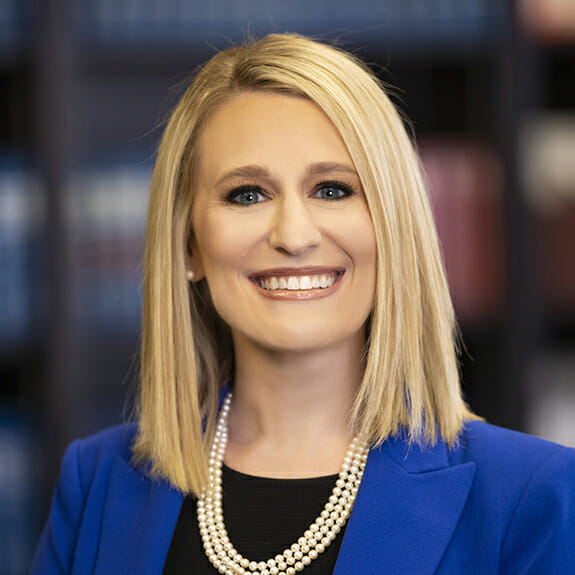NO FAKES Bipartisan Bill is Introduced in US House While California Passes AB 2602 and Tennessee Becomes First State in the Nation to Pass AI Protections Via the “ELVIS” Act.
While AI presents extraordinary opportunities for technological advancement, it also raises real concerns over protecting intellectual property like copyrights and an individual’s name, image, and likeness. Perhaps the most well-known example of the dangers of AI are those false, AI-generated images of the most famous person in the world, Taylor Swift. In 2024 alone she was the subject of AI-generated porn circulated online and a false, AI-generated endorsement of presidential candidate Donald Trump. While Ms. Swift’s battles are the most visible and recent examples of the fight against fake, AI-generated digital replicas, she will most certainly not be the last person negatively impacted by this new technology. As a result, a number of bills are making their way through both the federal and state legislatures seeking to protect individuals from fake, AI-generated replicas of their likeness.
On July 31, 2024, the hotly anticipated and bi-partisan Nurture Originals, Foster Art, and Keep Entertainment Safe Act (commonly referred to as the “NO FAKES Act”) was introduced in the United States Senate. On September 12, 2024, its companion legislation was introduced in the House of Representatives. In a nutshell, the NO FAKES Act protects a person’s “digital replica” that has been generated or materially altered by artificial intelligence (“AI”). The NO FAKES Act seeks to remedy the new problems AI has created by providing individuals, living or dead, a new intellectual property right over a person’s “digital replica” of one’s likeness that has been generated or materially altered by AI. Legislation on this issue is also making its way through the states, both in California with Assembly Bill 2602 (codifying the protections SAG-AFTRA won in its 2023 collective bargaining agreement with the Alliance of Motion Picture and Television Producers) and Tennessee with its recently signed into law Ensuring Likeness Voice and Image Security (“ELVIS”) Act.
The NO FAKES Act and its Advocates
The MWM Entertainment team analyzed the proposed NO FAKES Act when it was introduced in the US Senate in late July. A link to that article can be found here. This month, the companion NO FAKES Act was introduced in the House of Representatives. As an overview and in general, the proposed legislation creates a framework for rights holders to both license and enforce rights to their likeness in AI. The NO Fakes Act’s purpose is to protect the voice and likeness of all individuals from unauthorized, computer-generated recreations from generative artificial intelligence and other technologies. It creates a federal intellectual property right to an individual’s voice and likeness, including an extension of that right for families of individuals after they pass away. It would not create a broader federal right of publicity, which is currently protected by most states. Instead, it would create a federal intellectual property right to an individual’s own voice and likeness, creating a statutory private right of action for individuals to hold individuals and companies liable for production of unauthorized digital replicas and hold platforms liable for hosting unauthorized digital replicas if the platform has actual knowledge that the replica was not authorized. The act would authorize a range of damages or injunctive relief available that resemble those available in a copyright action.
Importantly, it proposes a notice and takedown demand process modeled after copyright laws DMCA (where copyright owners can demand removal of unauthorized content and internet service providers can skirt liability for hosting the infringing content by promptly removing it). This type of provision has been advocated for throughout the entertainment industry including, but not limited to, by the Screen Actors Guild-American Federation of Television and Radio Artists (“SAG-AFTRA”), the Recording Industry Association of America (“RIAA”), the Recording Academy, Warner Music Group, Universal Music Group, Sony Music, the Independent Film & Television Alliance, Creative Arts Agency, and the Authors Guild. Advocates, like the Human Artistry Campaign (“HAC”). Advocates, like the National Association of Voice Actors (“NAVA”), believe the NO FAKES Act balances the need to protect individuals and creators, First Amendment considerations, and fostering U.S. leadership and innovation in AI.
Criticisms of the NO FAKES Act
Although most critics acknowledge that the NO FAKES act is a significant improvement over the No AI FRAUD act introduced in the House earlier this year and prior discussion drafts of this act, critics remain concerned about the breadth of contemplated licenses, postmortem implications, and the likely targets of enforcement actions.
An existing concern in the name, image and likeness “NIL” space for student-athletes and right of publicity agreements for personalities more broadly is that those with low bargaining power or poor representation may agree to terms that allow uncontrolled exploitation of likeness for a decade and could likely spin out of control within the context of a 10 year AI license. Although some guardrails have been put in place surrounding minors, overall this will likely be an area of attention.
Another significant concern highlighted in criticism centers on postmortem rights because the proposed “digital replication right” extends 10 years after death, with possible 5-year extensions if heirs or previous licensees continue actively using the likeness. As currently drafted, if an individual’s “digital replication right” is licensed during life and inherited after death, it could last up to 70 years after an individual’s death.
On the enforcement side, critics contend that under the NO FAKES Act, any person has the right to sue anyone who has either made or made available, their “digital replica” without properly clarifying the scope of liability of the various parties potentially involved. ISPs will likely seek further development of their potential liability because if courts decide the replica right is a form of intellectual property, the NO FAKES Act will give individuals the ability to threaten platforms and companies that host allegedly unlawful content, which tend to have deeper pockets than the actual users who create that content.
California’s Proposed AI Likeness Protections
While the federal legislation is still in its nascent stage, California’s legislature has passed and Governor Newsom yesterday signed AB 2602, which codifies the hard-fought protections that SAG-AFTRA won in its 2023 collective bargaining agreement with the Alliance of Motion Picture and Television Producers after a 118-day strike. The bill mirrors the language in the SAG-AFTRA contract that ended last year’s extended strike against the film and television studios. AB 2602 would extend the rights enjoyed by film and television actors to other groups of performers including video game actors who are currently on strike seeking similar AI protections against major video game producers. The bill would also extend these rights to non-union workers. Signed into law by Governor Newsom yesterday, it will require an employer’s rights to create an AI replica of a performer to be explicitly bargained for in negotiations with a “reasonably specific” description of eventual use memorialized in the contract. Without an agreed upon AI replica provision, producers and other content creators that contract with actors would not be authorized to use an AI version of the actor’s likeness, voice, or similarly identifiable features if the AI version replaces work that the performer would have done. A legislative priority for the union, SAG-AFTRA worked promptly to address opposition to the bill early on by agreeing to revisions such as allowing AI use for historical docudramas, which was further expanded in AB 1836, also signed by Governor Newsom yesterday. AB 1836 protects the digital replica rights of deceased performers.
Tennessee’s Ensuring Likeness Voice and Image Security (“ELVIS) Act
While California has today codified AB 2602 and AB 1836, Tennessee became the first state in the nation to enact legislation safeguarding the voices of songwriters, performers, and celebrities from artificial intelligence and deepfakes with its Ensuring Likeness Voice and Image Security (“ELVIS”) Act, signed into law on March 21, 2024. The ELVIS Act amends the Personal Rights Protection Act of 1984 to add “voice” as a protected personal right and expands protection of such personal rights against all unauthorized uses. The ELVIS Act creates three separate causes of action:
(1) Any person is civilly liable who “knowingly uses or infringes upon the use of an individual’s name, photograph, voice, or likeness in any medium for purposes of advertising products, merchandise, goods, or services or for purposes of fundraising, solicitation of donations, purchases of products, merchandise, goods, or services, without [the] individual’s prior consent, or, in the case of a minor, the prior consent of such minor’s parent or legal guardian, or in the case of a deceased individual, the consent of the executor or administrator, heirs, or devisees of such deceased individual.”
(2) A person is civilly liable who “publishes, performs, distributes, transmits, or otherwise makes available to the public an individual’s voice or likeness, with knowledge that use of the voice or likeness was not authorized by the individual or, in the case of a minor, the minor’s parent or legal guardian, or in the case of a deceased individual, the executor or administrator, heirs, or devisees of such deceased individual.”
(3) A person is civilly liable who “distributes, transmits, or otherwise makes available an algorithm, software, tool, or other technology, service, or device, the primary purpose or function of which is the production of an individual’s photograph, voice, or likeness without authorization from the individual or, in the case of a minor, the minor’s parent or legal guardian, or in the case of a deceased individual, the executor or administrator, heirs, or devisees of such deceased individual.”
While the ELVIS Act has been almost universally supported by music and entertainment industry groups (including the American Music Association, the Academy of Country Music, the American Association of Independent Music, the Global Music Association, and many others), proponents of AI have expressed concern over potential First Amendment issues.
Conclusion
As the right to control AI-generated likeness is developed in state and federal law MWM’s Entertainment team and AI and Machine Learning team will continue to closely monitor its progress.


